How tenuous is tenure? Takers, non-takers weigh in
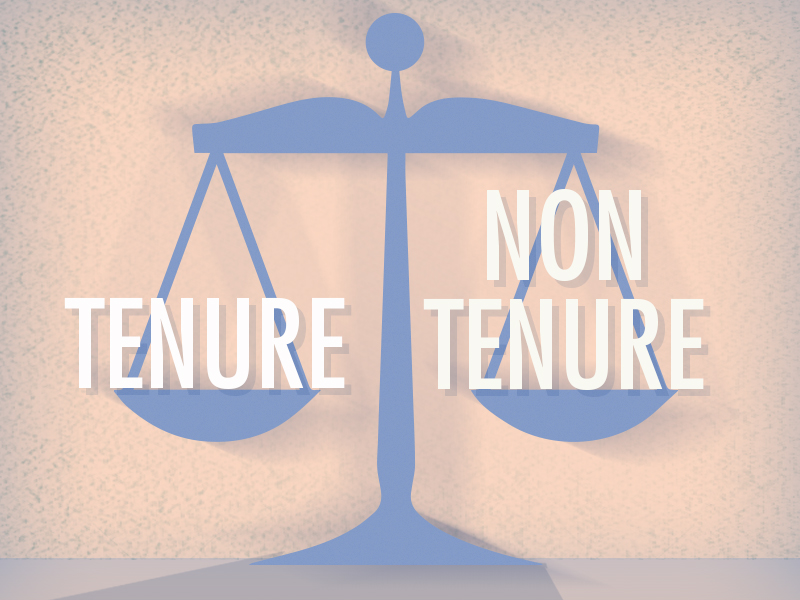
To understand tenure, think of it in terms of rock-paper-scissors – as the rock of job security crushing the scissors of hasty dismissals but vulnerable to smothering paperwork.
“Paperwork” here meaning, among other things, something called post-tenure review; still, that is only one possible explanation for a trend in academic circles: Fewer faculty members are competing for, or achieving, tenure, including those in the School of Medicine at the University of Mississippi Medical Center.
Between 1984 and 2014, the proportion of clinical faculty on tenure-eligible tracks crumpled, from 59 to 26 percent, nationwide, says a study released in 2015 by the Association of American Medical Colleges.
Here at UMMC, the percentage of full-time tenured medical school faculty dropped from 34 to 28.7 between 2013 and 2017 – all of which is prompting some to ponder tenure’s relevance, while others continue to champion its allure.
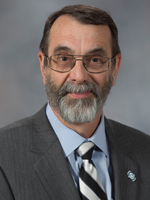
“I have tenure, but the longer I am in the business of education, the less value I see in it,” said Dr. Robin Rockhold, professor of pharmacology, professor of health sciences and deputy chief academic officer. “But that is an opinion of one individual.”
Another opinion: “It’s an important recruiting tool for Mississippi to attract the best scientists and educators,” said Dr. Joey Granger, the Billy S. Guyton Distinguished Professor of Physiology and Medicine and dean of the School of Graduate Studies in the Health Sciences.
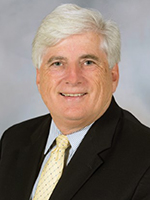
“We expect loyalty from those we recruit,” said Granger, who, some years ago, served as chair of the School of Medicine Appointments, Promotions, and Tenure Committee. “At the same time we need to show them loyalty by rewarding tenure to those who achieve the highest standards of their profession.”
As for one of those rewards, Dr. Risa Moriarity, associate professor of emergency medicine and current School of Medicine chair of the appointment, promotions and tenure committee, described it this way: When someone’s job is on the line, it is a guarantee of due process that requires the university to prove that the faculty member is “behaving unprofessionally or is incompetent.”
Or that the professor’s academic department is closing, or that the institution is direly strapped.
“Tenure offers some employment protection,” Moriarity said. “It means the university highly values [these] professors and considers them an asset to the institution.”

Still, the rewards are not quite as, well, rewarding as in the days of yore, when tenure was thought of – although not 100 percent accurately – as a “job-for-life” guarantee.
“Today, there are some very discrete limits to that protection,” Rockhold said.
Created around the time George Washington retired to Mount Vernon, tenure was forged as a near-impenetrable shield for academic freedom in religious schools. It was meant to reward individual accomplishments, while deflecting the sword of administrative persecution or whim.
Tenure’s superpowers, however, began to succumb to the Kryptonite of change, especially by this century. A big part of that change is wrapped up in the concepts of teamwork and cooperation – notions that may derail faculty members from the tenure track.
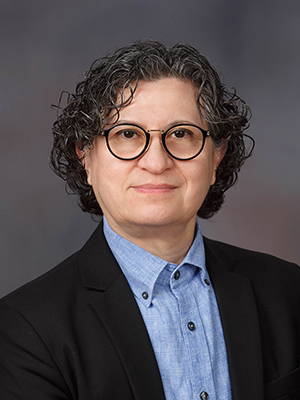
“More and more, there is a new way to work because of the global economy: You want to collaborate,” said Dr. Norma Ojeda, associate professor of pediatrics, who chose the non-tenure track.
“The model of the lone wolf is disappearing,” said Ojeda, who is also president of the UMMC Group on Women in Medicine and Science. “But on the tenure track, you are like a high-performing athlete: You must break your own record in every race. You must demonstrate that you are independent. How do you demonstrate that if you are part of a pack?
“With non-tenure, there is less pressure for promotions. I do understand that you have to have standards to measure something. And to measure something, you need something that is rigid. That is why we use a ruler.
“But knowledge is so fluid. How do you use something rigid to measure knowledge, something that keeps changing in the way it is transferred to the next generation and in the way it is used?”
What about prestige? “Tenure does bring prestige,” Ojeda said, “but prestige that doesn’t help spread knowledge has no meaning for the younger generation.”
Something that does have meaning to most generations is money. And that brings up another change affecting the appeal of tenure.
“Tenure previously implied some degree of economic security (both in medical schools and higher education more broadly),” said Dr. Sarah A. Bunton, research director for Medical School Operations at the AAMC.
Enter the kick-in-tenure’s-pants known more formally as “tightened budgets.”
In order to meet those budgets, medical schools “increasingly provide little or no financial guarantee to tenured faculty,” Bunton said.
Still, a large majority of U.S. medical schools, 136 of 146 (one other school’s status is not yet known), offer tenure to at least some of their faculty, the AAMC reports.
At UMMC, you can switch from the tenure to the non-tenure track, and vice versa. Dr. Michael Hall, for one, does not sound as if he’s likely to switch.
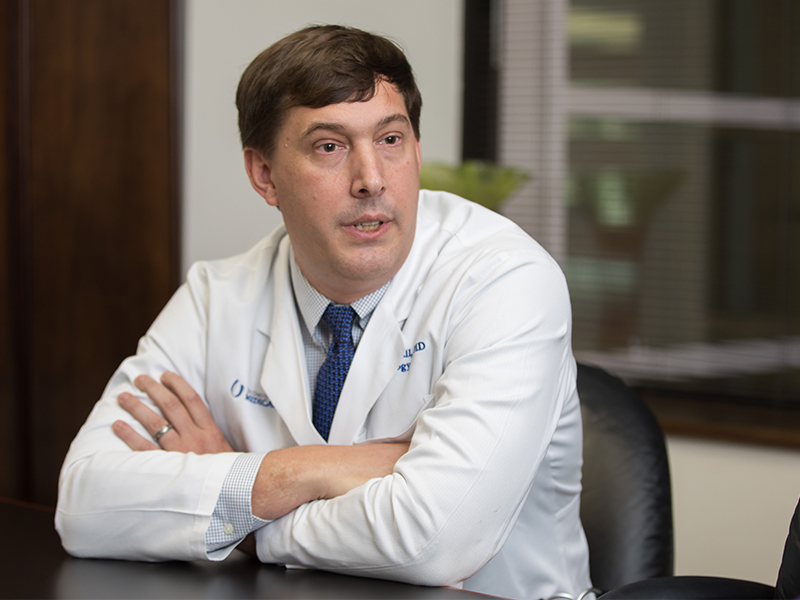
Dr. Michael Hall discusses his views on tenure.
An associate professor of cardiology, Hall is a physician-scientist who has been on the medical school faculty for five years. He will be considered for tenure in one more year, meeting the six-year threshold required by the Board of Trustees of the Mississippi Institutions of Higher Learning; and that is his goal.
Hall admits that the expectations are typically different for someone seeking tenure; you must show achievements in three areas: service, research and education; while the non-tenure track requires two, although three’s better. Particularly for the research mission, “achievement” means getting published and securing grants.
No matter your mission choices, you must have held a minimum rank of associate professor for at least four years to be considered for tenure.
“The prestige is very important,” Hall said, “but, in fact, trying to achieve it may delay your promotion. Even non-tenure track employees on missions beyond patient care – that is, research or teaching – can be as successful as someone on the tenure track.
“So, why would anyone put themselves through this? Most of us who are accepted probably see it as a compliment. It’s a little harder to get. The bar is higher. I suppose that most of us who chose this route want to do a little more; maybe we think of it as a personal accomplishment.”
Over the past several years, the road to that accomplishment has become less potholed, but at the same time more slippery. Enter the post-tenure review, an annual faculty evaluation mandated by IHL in 2005.
Under its terms, if reviews determine that a tenured faculty member’s performance is lacking for two out of four years, the post-tenure review policies kick in, including a plan to improve that performance, which can return the faculty member to “full standing.”
Otherwise, the verdict is dismissal.
“It’s like a person has failed the final exam,” Rockhold said.
To sum up, a tenured faculty member’s job security suddenly became less secure.
Moriarity, for one, said it’s probably “too early” to know if post-tenure reviews are putting a damper on tenure ambitions.
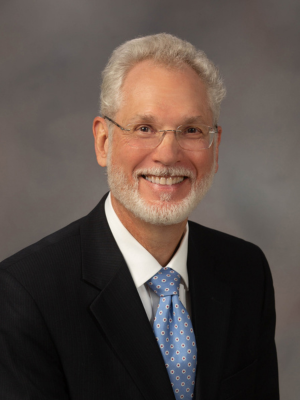
On the plus side, perhaps, the IHL mandate shifted responsibility for tenure consideration from the hands of department chairs, said Dr. Patrick Smith, chief faculty affairs officer.
“Before the mandate, someone could be on the tenure track forever before being considered for tenure.”
The mystery of achieving, and keeping tenure, was reduced even more in 2011, when the School of Medicine published, for the first time, its own tenure track promotions guidelines (non-tenure standards were published in 2015).
“It was not clear if the process was fair, objective and equitable before 2011,” Smith said. “Our office tries to assure that it is.”
Without tenure, you can be dismissed very easily if your performance falls below expectations, Rockhold said.
“If you are tenured, you have “a longer period of protection before something happens.”
Under the IHL guidelines, salary protections were laid out; tenured faculty in the medical school are guaranteed at least a portion of their regular compensation: $70,000 for an assistant professor; $75,000 for an associate professor; $90,000 for a professor.
Still, how much you make could influence how much tenure matters to you, especially if you make several times the guarantee. For those whose overall compensation is high, the bloom may be off the rose regarding the tenure track.
“These are usually the faculty members who focus most on clinical work,” Smith said.
Which is another reason for falling tenure numbers: “There’s been a tremendous expansion here of the clinical faculty with service emphasis,” Granger said.
“Practicing physicians tend to have more of a clinical background, compared to the research/educational missions.”
Faculty members may choose the non-tenure track for several reasons, Moriarity said.
“They might anticipate relocating in a couple of years, their focus might be predominantly patient care, and/or they may not want to devote time to pursuing grant funding and publication, both of which are traditionally expected on the tenure track.”
Finally, reward-wise, there is tenure’s promise of academic freedom – “the ability to express opinions, advocate for change and challenge the university administration without fear of reprisal or retaliation,” as Moriarity put it. How important is that in an academic medical center environment?
“There does not appear to be any major flash points for academic freedom being threatened,” Smith said. “The risks are less pronounced in this setting than in a traditional university environment.”
Rockhold’s take: “Whether academic freedom really exists is open for debate. Increasingly, I believe, our universities are not bastions of independent thinking. That’s not a role they are particularly good at.”
So where does that leave tenure’s future? Will it go the way of the head mirror or the smallpox vaccine, at least at places like UMMC?
Although “a few deans” across the country may support tenure’s demise, Bunton said, that “is not a widespread belief.”
For her part, Moriarity sees it changing: “Many academic medical centers are revising their tenure and non-tenure track guidelines to allow clinicians more flexibility in designing a career that meets their needs.”
Tenure’s potential obsolescence is an ongoing discussion, Rockhold said. “Academic medical centers are not in the forefront of vigorously defending it. While it may have had value in the past, I believe there are other models that better serve higher education’s values.”
Granger is more sanguine: “I don’t believe tenure will go away. Having tenure at UMMC is not the issue; the real issue is that we have the highest standards to obtain tenure and have a rigorous post-tenure review process.”
RELATED
POST TENURE REVIEW 2013-2107
| Year | Full-time faculty | Tenured Faculty (%) |
| 2013 | 811 | 276 (34.0) |
| 2014 | 853 | 268 (31.4) |
| 2015 | 883 | 270 (30.6) |
| 2016 | 929 | 263 (28.3) |
| 2017 | 917 | 263 (28.7) |
SOURCE: University of Mississippi Medical Center, Executive Cabinet Update, Academic Mission, August 2017


